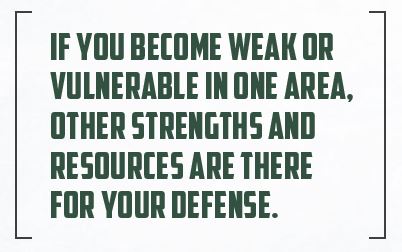Walking the Persistent Christian Journey
The Christian life is a journey of persistence and endurance. Each morning when we wake up, we have no idea what the day will bring—a flat tire, a troubling phone call, a medical diagnosis. The question isn’t whether we’ll have trouble but when and how. Following the example of Ernest Shackleton’s expedition to Antarctica, we can illuminate five biblical strategies for enduring hard times.
When the Imperial Trans-Antarctic Expedition left Plymouth, England, on August 8, 1914, its goal was to make history by crossing Antarctica on foot. The 28 members made history, to be sure, but in a way not one of them expected or would have volunteered for had he known the fate of the group.
The leader of the expedition was Sir Ernest Shackleton, already a famous British explorer. His family’s motto, Fortitudine vincimus—“By endurance we conquer”—provided the name for the expedition’s sailing ship, Endurance. No one knew that the ship’s name would become the watchword for the entire journey. What Shackleton and his crew experienced has gone down in history as one of the greatest examples of persistence and endurance ever recorded.
The expedition left South Georgia Island in the South Atlantic Ocean and sailed for Antarctica in December 1914. While still 100 miles from the coast of Antarctica, the Endurance became locked in surface ice. For nine months the frozen ocean slowly dragged the ship farther away from the continent, finally crushing the vessel and sinking it in November 1915. The group set out on foot to walk 400 miles across the ice, towing Endurance’s three lifeboats and what they had salvaged from her. Traversing ice and water, they made it to barren, frozen Elephant Island, setting foot on soil for the first time in 497 days.
From there, on April 24, 1916, Shackleton and five others set out in a 21-foot lifeboat for their original point of embarkation, South Georgia Island. The lifeboat took them 800 miles across the fiercest seas on planet earth, the South Atlantic Ocean. Seventeen days later, almost a year and a half after leaving South Georgia Island originally, their tiny craft arrived. Shackleton and the others returned in a Chilean vessel to rescue the remainder of the crew from Elephant Island, not one of whom had perished.
The details of what these 28 souls endured during their odyssey are staggering. Living in frozen-stiff clothing which went unchanged for months. Frostbite. A diet of penguin and eventually their own sled dogs. Unrelenting sub-zero temperatures. For more than a year it was two steps forward, one step back. And yet they endured. They persisted. They persevered. They would not, and did not, give up until they reached safety.
While human behavior experts have studied the Shackleton expedition from a human endurance perspective, it presents food for thought for the Christian as well. What odds, what obstacles, what suffering are we willing to endure to remain faithful to our calling? What resources can we use to make it through difficult times? What daily preparations for our spiritual journey can we make to ensure success? As Hebrews 10:36 says, “For you have need of endurance, so that after you have done the will of God, you may receive the promise.”
Like the Shackleton expedition, it is an adventure filled with unexpected twists and turns. One minute you’re making ground, basking in the warm glow of spiritual success, and the next minute you’re watching your soul shatter as you fall back, losing precious progress. How can we find the constancy needed in a life where two steps forward and one step back is more the rule than the exception?
Using the Shackleton expedition as a paradigm, let’s consider what you and I can do to make persistence and endurance our response to the difficult passages in our own spiritual journey:
1. Anticipate Trials
Shackleton was a veteran explorer. He made trips to Antarctica in 1901 and 1906, the latter winning him fame for marching to within 100 miles of the South Pole, the farthest south anyone had been to that date. He knew the risks when he set out in 1914 and prepared accordingly.
Many Scriptures warn us that the spiritual life is filled with dangers. In fact, we are told that trials are not unusual but are a normal part of the Christian life (Hebrews 12:1; James 1:2; 1 Peter 1:6; 4:12). It was the warning given to Paul about the nature of what he would suffer that allowed him not to wilt before dangers (Acts 9:16; 20:23; 21:4, 11; 1 Thessalonians 3:3). Knowing how preparation helped him, Paul gave Timothy the same benefit: “You . . . must endure hardship as a good soldier of Jesus Christ” (2 Timothy 2:3). To anticipate trials is to be prepared for the journey of persistence.

2. Achieve Balance in Your Walk
What would you have packed in your ship in 1914 if you were leading Shackleton’s expedition? If they took too much of one resource, and not enough of another, they would have found themselves suffering depending on the problem they encountered. Balancing their resources required wisdom and breadth of experience.
Whenever I meet a Christian who spends all his time studying the Word, but no time involved in the lives of others, I worry for him. Or someone who devotes her life to worship and praise, but never finds time to pray. Or a person committed to social service ministry but hasn’t read his Bible in weeks. The devil has schemes and strategies to use against believers (2 Corinthians 2:11; Ephesians 6:11). If you give him a vulnerable place to gain a foothold (Ephesians 4:27), a place where you are weak, you can expect him to attack you there. You must be balanced. You must know the Word, be accountable to others, spend time in praise and worship, have a ministry of service, be memorizing Scripture—all are important. If you become weak or vulnerable in one area, other strengths and resources are there for your defense. Balance results in more steps forward than backward.

3. Assemble a Support Team
More than 5,000 people applied to accompany Shackleton on his 1914 expedition. From that number he chose 26 (plus an unplanned stowaway). As a result of his choosing well, Shackleton wrote that the crew, even in “dark days and . . . continuous danger, kept up their spirits and carried out their work.”
Who is your crew? Are you forging bonds with people who keep up their spirits and stay faithful in kingdom work even during the dark days? Are you teaching your children how to find a lifelong partner who will be there for them when the days get dark? Scripture says there are friends who stick closer than a brother (Proverbs 18:24), and those are the kind you want to take on your journey—friends who will never let you give up. If you stumble and fall on the way, nothing will get you on your feet faster than the extended heart and hand of a strong friend.

4. Avoid Distractions
Historical accounts agree that if Ernest Shackleton had not been the leader of the expedition to Antarctica, all might have perished. He was a man possessed of great purpose—as well as a family focus: Fortitudine vincimus, “By endurance we conquer.”
The apostle Paul was a man of similar single-mindedness: “I press toward the goal for the prize of the upward call of God in Christ Jesus” (Philippians 3:14). He would not allow anything to trip him up or entangle his feet or keep him from running with endurance the race that was set before him (Hebrews 12:1). If Paul was anything, he was a persistent Christian. We are all focused on something, and that focus provides a set of values and priorities that will keep us faithful to Christ—or not.
5. Align Your Perspective
The Imperial Trans-Antarctic Expedition left England in 1914 with one ultimate purpose: Return safely to England. Shackleton and his men knew where their home was. They had left friends and family in England and Ireland, the lands of their citizenship. They would be aliens and strangers in Antarctica.
The Scripture says our citizenship is in heaven, that we are aliens and strangers as far as this earth is concerned (Philippians 3:20; Hebrews 11:13-16). It’s important to keep your spiritual compass aligned at all times. Not to do so is to risk acting like the Israelites who wanted to go back to Egypt to their fish and garlic and vegetables. They lost their way!—and died before getting to their true home, their promised land. Don’t get comfortable on foreign soil when things get hard. This world is not your home.

You will likely never experience what Shackleton and his men did. But sometimes your trials can feel just as painful. Anticipation, balance, a strong team, focus, and perspective allowed Shackleton and his men to take two steps forward for every step back—as they will you. Start preparing for your own persistent Christian journey. The time to prepare for tomorrow’s challenges is today.
Browse these related articles by David Jeremiah:
Why Does God Let Bad Things Happen?
Why Does God Allow Suffering?
7 Biblical Answers for Dealing With Adversity
5 Surprising Reasons God Allows Adversity
When You Feel Discouraged... Do This Immediately
4 Ways to Meet God in Hard Times
18 Bible Verses for Overcoming Anxiety and Stress
Trusting God When Your Prayers Aren’t Answered
5 Psalms for Hope in Hard Times
Daily Scriptures for Finding Inner Peace
Experiencing God’s Presence in the Midst of Darkness
5 Biblical Strategies for When Life Is Hard
The Loss of a Loved One: Moving From Grief to Hope
7 Prayers for Inner Peace
The Secret to Gaining Joy When Life Is More Than You Can Handle
Why COVID? Finding Shelter in God During Times of Crisis
Finding Your Purpose Through Pain: The Story of Joni Eaereckson Tada
This Might Be the Reason God Tells You "No"
How to Spot a False Prophet
